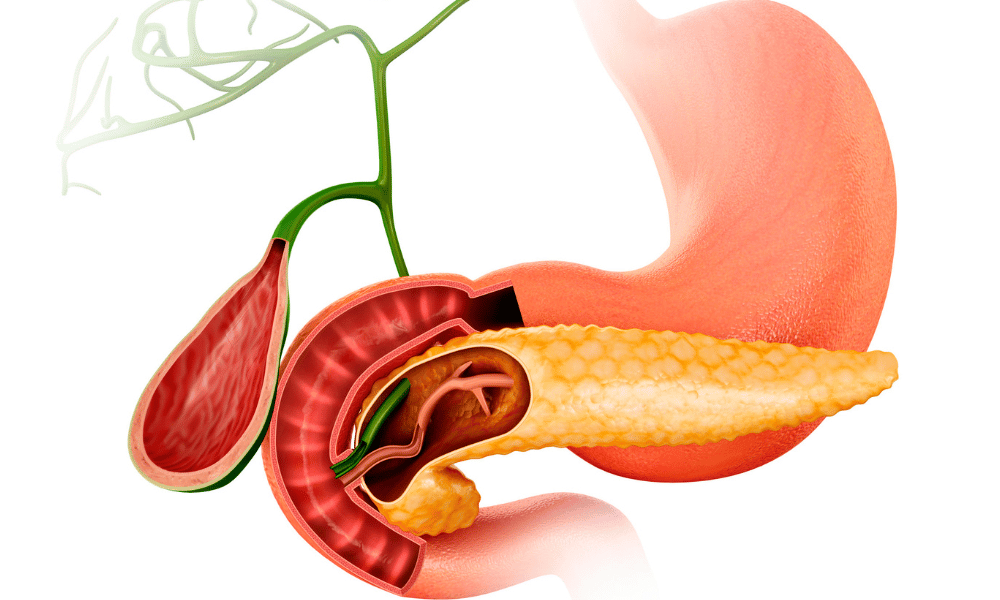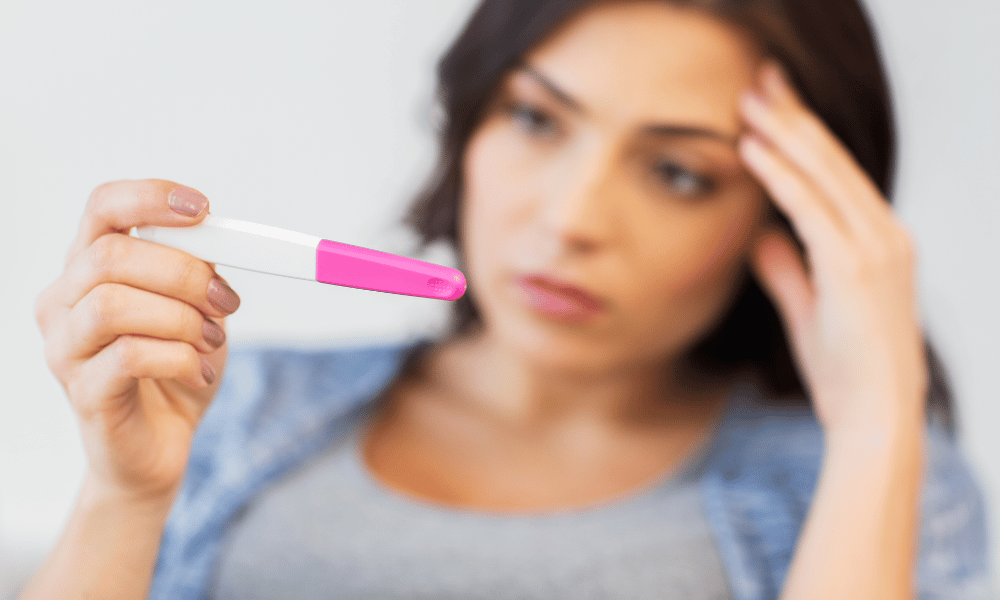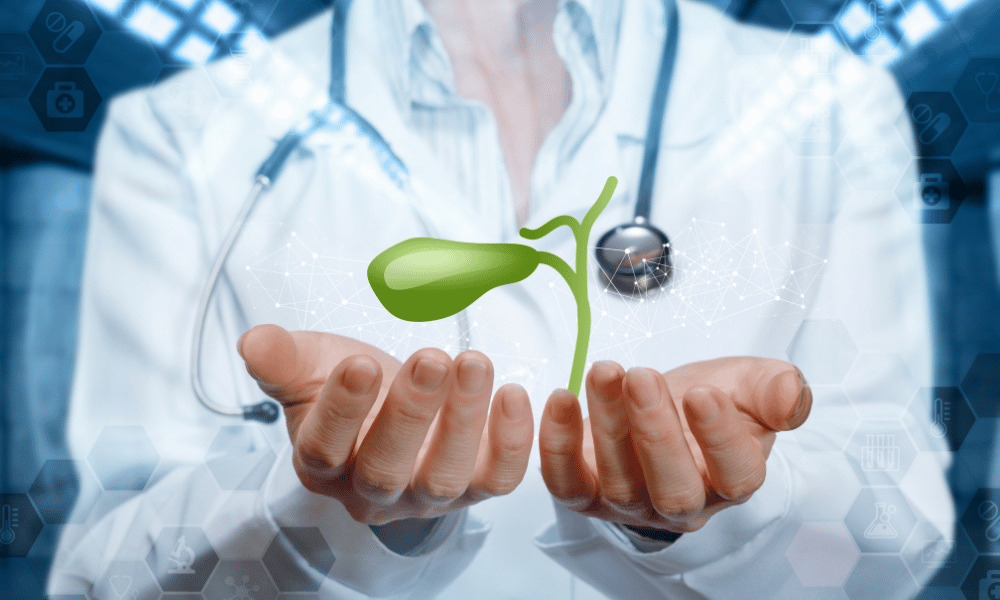
Can Gallbladder Cause Fertility Problems In Females? The gallbladder is a small organ that plays a vital role in digestion. But can it influence a woman’s fertility? This question has sparked significant interest and research in the medical community. This blog post will delve into the current understanding of how gallbladder issues might affect female fertility, drawing on the most recent research and expert insights.
Understanding The Gallbladder

The gallbladder is a small, pear-shaped organ located beneath the liver. It stores bile, a fluid produced by the liver to digest fats1. But could issues with this organ inadvertently affect a woman’s ability to conceive? The gallbladder is responsible for storing bile produced by the liver. Gallstones, or cholelithiasis, can form in the gallbladder and are typically composed of cholesterol, bilirubin, and bile [1]. Gallstones can cause various health problems, including gallbladder attacks and inflammation known as cholecystitis [7].
The Connection Between Gallbladder Issues and Female Fertility | Can Gallbladder Cause Fertility Problems In Females

While gallstone disease has been associated with factors such as young age at menarche, abortions, and multiple childbirths, it does not appear to directly affect fertility2. However, the relationship between gallbladder issues and fertility is complex and varies depending on several factors. Gallbladder problems themselves are not typically associated with fertility problems in females. However, certain factors related to gallbladder issues can indirectly impact fertility. Here are some key points to consider:
Pain and Discomfort
Severe gallbladder pain can lead to stress and discomfort, potentially affecting a woman’s overall well-being and reproductive health.
Surgery
In some cases, gallbladder problems may require surgical removal of the gallbladder (cholecystectomy) [6]. Surgery and anesthesia can have short-term effects on the menstrual cycle, but these effects are usually temporary.
Medication
Some medications used to manage gallbladder issues may have side effects that could impact fertility. It’s essential to discuss potential side effects with a healthcare provider.
Gallbladder Issues and Pregnancy
Pregnancy can contribute to gallbladder problems due to increased hormone levels, especially progesterone3. If the gallbladder is affected during pregnancy, it can cause symptoms and complications that could impact the baby’s health4.
Gallstones and Fertility
Though there is anecdotal evidence suggesting a connection between gallstones and fertility issues, medical professionals generally agree that gallstones do not directly impact fertility5 6.
Fertility and Other Factors
When it comes to female fertility, various factors can play a more significant role:
- Ovulation Disorders: Ovulation disorders, such as polycystic ovary syndrome (PCOS), are more directly linked to fertility issues [4]. These conditions affect the regular release of eggs necessary for conception.
- Age and Menopause: The age at which a woman tries to conceive and the onset of menopause can significantly impact fertility. Women are more likely to develop cholesterol gallstones during their reproductive years [3].
Can I Get Pregnant with Gallstones?

Yes, you can get pregnant with gallstones. Gallstones are a common medical condition, especially in women, and their presence does not typically interfere with the ability to conceive. However, it’s important to be aware that the hormonal changes that occur during pregnancy can increase the risk of gallstone-related complications, including gallbladder attacks. The risk is higher in pregnant individuals, and these complications may require medical attention. While the presence of gallstones itself does not prevent pregnancy, it’s advisable to manage and monitor the condition if you are planning to conceive. Consulting with a healthcare provider is essential to ensure a healthy pregnancy and to address any gallstone-related concerns.
Foods to Avoid with Gallbladder Issues During Pregnancy

“Pregnant individuals face an elevated susceptibility to the formation of gallstones owing to heightened estrogen levels,” advises Dr. Jose Nieto, a gastroenterologist associated with the Borland-Groover Clinic in Jacksonville, Florida. He underscores that the peril is further compounded by post-pregnancy weight fluctuations, encompassing both gain and rapid loss. The surge in estrogen proves problematic due to its potential to induce a surge in cholesterol levels within the bile, a circumstance that can culminate in the emergence of gallstones. Additionally, a heightened vulnerability to gallstone development is observed among women employing birth control medications or undergoing hormone replacement therapy, as these agents contain estrogen.” How To Prevent Gallstones During Pregnancy Here’s the latest information on foods to avoid with gallbladder issues while pregnant with references and citations:
Fatty and Fried Foods
High-fat and fried foods can trigger gallbladder attacks. Avoid foods like deep-fried items, fatty cuts of meat, and greasy snacks. These can exacerbate gallbladder symptoms [3].
Whole-Milk Dairy Products
Whole-milk dairy products, such as cheese, ice cream, and butter, are high in saturated fats. These can contribute to gallbladder discomfort. Opt for low-fat or non-fat dairy options instead [5].
Highly Processed Foods
Processed foods like doughnuts, pie, and cookies often contain trans fats and unhealthy additives that can worsen gallbladder issues. Choose whole, natural foods whenever possible [5].
Spicy Foods
Spicy foods can irritate the digestive system and lead to gallbladder discomfort. During pregnancy, it’s best to avoid overly spicy dishes and opt for milder flavors [5].
Caffeine and Carbonated Drinks
Caffeine and carbonated drinks can trigger reflux and worsen gallbladder symptoms. It’s advisable to limit or avoid coffee, tea, and carbonated beverages during pregnancy [7].
High Omega-3 Fatty Foods
While omega-3 fatty acids are generally considered healthy, certain high omega-3 foods like fatty fish can increase the risk of gallbladder issues during pregnancy. Moderation is key [6].
Remember that individual tolerance varies, and it’s essential to consult with your healthcare provider or a registered dietitian for personalized dietary guidance during pregnancy. Their expertise will help you make informed choices that promote gallbladder health and overall well-being.
How to Treat Gallbladder Attacks During Pregnancy?

Gallbladder attacks during pregnancy can be challenging, and the approach to treatment must prioritize the safety of both the mother and the baby. Here’s the latest information on how to treat gallbladder attacks during pregnancy with references and citations:
Consult a Healthcare Provider
Seek immediate medical attention when experiencing gallbladder attack symptoms during pregnancy. Consult with your healthcare provider for proper evaluation and guidance [1].
Dietary Modifications
Adopt a low-fat, bland diet to reduce the likelihood of gallbladder attacks. Avoid high-fat or spicy foods that can trigger symptoms [2].
Medications
Your healthcare provider may prescribe safe medications to manage pain and inflammation associated with gallbladder attacks during pregnancy [2].
Surgical Intervention
In severe cases, where gallbladder attacks persist or become life-threatening, surgical removal of the gallbladder (cholecystectomy) may be considered. This procedure is generally safe during the second trimester or later stages of pregnancy [3].
Ursodeoxycholic Acid
Ursodeoxycholic acid (UDCA) is used to treat obstetric cholestasis, a condition that can occur during late pregnancy. UDCA can help manage symptoms associated with gallbladder issues during pregnancy [5].
Remember that the treatment approach should be individualized, taking into account the severity of symptoms and the stage of pregnancy. Always follow the guidance of your healthcare provider and seek immediate medical attention if you experience severe or persistent symptoms.
Conclusion
The relationship between gallbladder issues and female fertility is multifaceted and still being explored. While some studies suggest potential effects, more research is necessary to fully understand the implications. As we navigate our reproductive health journeys, it’s crucial to make informed decisions about our healthcare choices, including understanding the potential impacts of gallbladder issues.
FAQs
Do gallbladder issues affect female fertility?
While gallstone disease has been associated with factors such as young age at menarche, abortions, and multiple childbirths, it does not appear to directly affect fertility.
Can gallbladder issues cause complications during pregnancy?
Pregnancy can contribute to gallbladder problems due to increased hormone levels, especially progesterone. If the gallbladder is affected during pregnancy, it can cause symptoms and complications that could impact the baby’s health.
Is it safe for women trying to conceive to have gallbladder issues?
Given the lack of conclusive evidence and the potential risks, women trying to conceive should discuss their gallbladder health with their healthcare provider.
Can gallbladder issues cause fertility problems in females?
While some studies suggest potential effects, more research is needed to establish a clear relationship between gallbladder issues and fertility.
Can Gallstones Cause Miscarriage?
While gallstones can lead to complications and pain during pregnancy, there is no direct evidence to suggest that gallstones cause miscarriage. However, gallbladder issues during pregnancy should be monitored and managed to ensure the well-being of both the mother and the baby. If you have concerns about gallstones and pregnancy, it’s essential to consult with a healthcare provider for proper evaluation and guidance.
Does Gallbladder Removal Affect Future Pregnancy?
Gallbladder removal, known as cholecystectomy, typically does not have a significant impact on future pregnancies. Women who have undergone gallbladder removal can conceive and have a healthy pregnancy. The absence of the gallbladder might lead to changes in digestion, but it does not directly affect the ability to become pregnant or carry a pregnancy to term. However, if you have concerns about this, it’s advisable to consult with a healthcare provider for personalized guidance.
